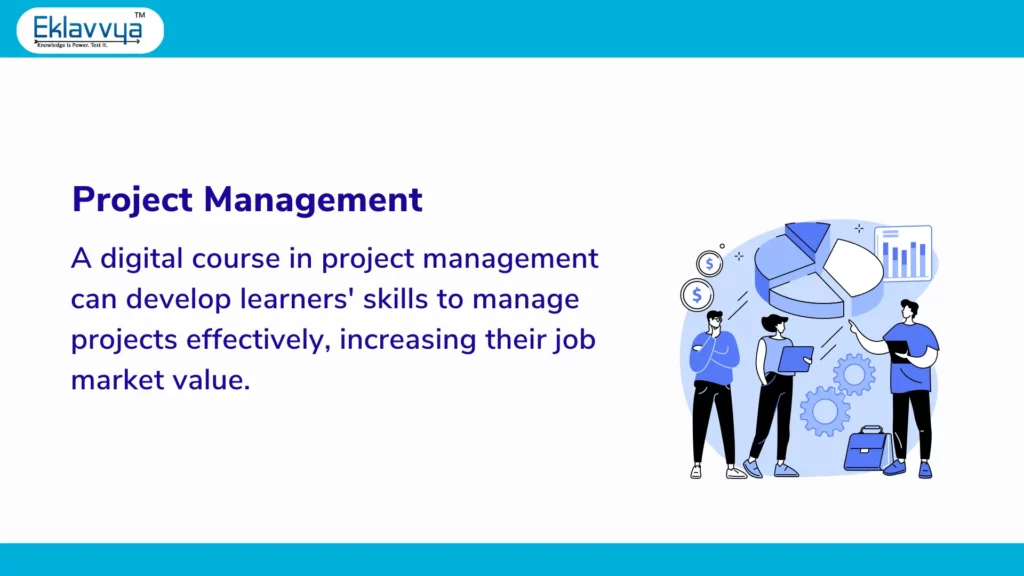
Article Contents
Introduction
👋 Welcome to the world of online education in 2024! As more and more students seek to improve their knowledge and skills through digital courses, teachers must understand the key areas where their students and staff members want to excel. 💻
To stay competitive, education institutes must focus on providing courses that meet the demands of both the industry and students looking to enhance their employability. 🔍
Industry leaders are paying a premium on on-demand skills, soft skills, creative abilities, and the ability to quickly learn new tools and processes. 💼
In response, there is a growing demand for online courses that can help graduates improve their soft skills and develop the specific skills that employers demand.
9 key areas for delivering online courses that can help students succeed in this rapidly evolving landscape📚-
1. Technical Skills

Learning how to become more proficient in technical areas like coding, web development, and digital marketing is one of the main goals of learners.
By 2025, there will be 1.4 million openings for positions related to computer science, according to a forecast by Burning Glass Technologies.
You may assist learners in developing the skills they need to thrive in the digital economy by providing a digital technical skills course.
2. Soft Skills

There is a rising need for education in soft skills like communication, teamwork, and problem-solving in addition to technical knowledge.
92% of hiring managers listed soft skills as a crucial consideration in their hiring decisions, according to LinkedIn research.
Delivering a digital soft skills course can assist students in acquiring the abilities necessary to succeed in the workplace of the modern era.
3. Entrepreneurship

There is an increasing need for courses in entrepreneurship and business development as the gig economy and entrepreneurship grow.
14% of adults globally are active in starting or running a new firm, according to a survey by the Global Entrepreneurship Monitor.
Delivering a digital entrepreneurship course can assist students in gaining the knowledge and abilities necessary to launch and expand their businesses.
4. Language Learning

The need for language learning programs is expanding as organizations become more globally connected.
The global language learning market is anticipated to grow to $10.5 billion by 2025, according to a Rosetta Stone analysis.
Delivering a digital language learning course can assist students in acquiring the language skills necessary for productive global communication with clients and coworkers.
5. Personal Development

The demand for personal development courses is rising, along with the emphasis on self-improvement and personal growth.
It is a characteristic of humans that they need to learn and unlearn things, adapt to new things, and improvise their personalities.
You can assist learners in acquiring the skills they need to realize their personal and professional goals by providing a digital course in personal development.
6. Cybersecurity

The threat of cyberattacks is increasing as the world gets more digital. A report by Cybersecurity Ventures estimates that by 2025, cybercrime will cost the global economy $10.5 trillion annually.
You may assist students in acquiring the information and skills necessary to secure their online presence and defend their organizations against cyber-attacks by providing a digital cybersecurity course.
7. Creative Arts

There is a rising need for courses in creative arts, such as graphic design, animation, and photography, in addition to technical and soft skills. You can assist students in honing their creative abilities and exploring new job options by offering a digital course in creative arts.
8. Health and Wellness

There is an increasing need for courses in health and wellbeing due to the ongoing epidemic and growing awareness of mental health. Grand View Research estimates that by 2024, the global wellness business will be worth $6.5 trillion.
You may encourage students to form good habits and enhance their physical and mental well-being by providing them with a digital course in health and wellness.
9. Project Management

In today’s business environment, efficient project management is essential, and there is a great need for individuals with these skills. Poor project management procedures cause firms to squander $97 million for every $1 billion invested, according to a report by the Project Management Institute.
You can help learners develop the abilities they need to manage projects successfully and raise their worth in the job market by offering a digital course in project management.
Conclusion
The world is changing at a faster pace than ever. With the advent of AI, we need to learn more and more advanced skills to match the needs of our demanding jobs. With such a competitive job market, students are also trying to learn new skills while they are studying at universities.
Online courses are their on-the-go learning partners. Online courses not only teach them an in-demand skill but also help them to stay at an edge above others. As the demand for online courses thrives, it is important to understand the demand and focus on delivering courses in line with this demand. Instructors should consider the above high-demand areas when creating courses to serve the needs of learners.
Bonus tip
This is the best time for teachers to deliver the online courses, here are 6 reasons why institutes should consider delivering an online course from 2024-
1. Students are preferring to learn about more than one domain or skill
2. UGC has given mandate for students to take two full time degree courses, opening up way to thousands of students to full time online courses
3. Majority of jobs are demanding multiple skills, extending the online course need to corporate employees
4. Students and corporate employees are following the approach of continuous learning, and online courses are thus becoming a preferred way of learning
5. Online courses are mostly self-paced and thus attract the corporate employees and students engaged in other full-time course
6. With online courses, the institute can outreach and serve education to a larger number of learners




![How Government-Led Exams at 250+ Locations Are Setting New Standards of Integrity [Case Study]](https://www.eklavvya.com/blog/wp-content/uploads/2024/04/Enhancing-Exam-Integrity-Government-Certification-in-250-Locations-150x150.webp)
![Transforming Central Govt. Exams Evaluation: How Onscreen Marking is Leading the Charge [Case Study]](https://www.eklavvya.com/blog/wp-content/uploads/2024/04/How-Onscreen-Marking-Revolutionized-Central-Govt-Exams-Case-Study-1-150x150.webp)














![How Onscreen Marking Revolutionized Central Govt Exams [Case Study]](https://www.eklavvya.com/blog/wp-content/uploads/2024/04/How-Onscreen-Marking-Revolutionized-Central-Govt-Exams-Case-Study-1-300x300.webp)
